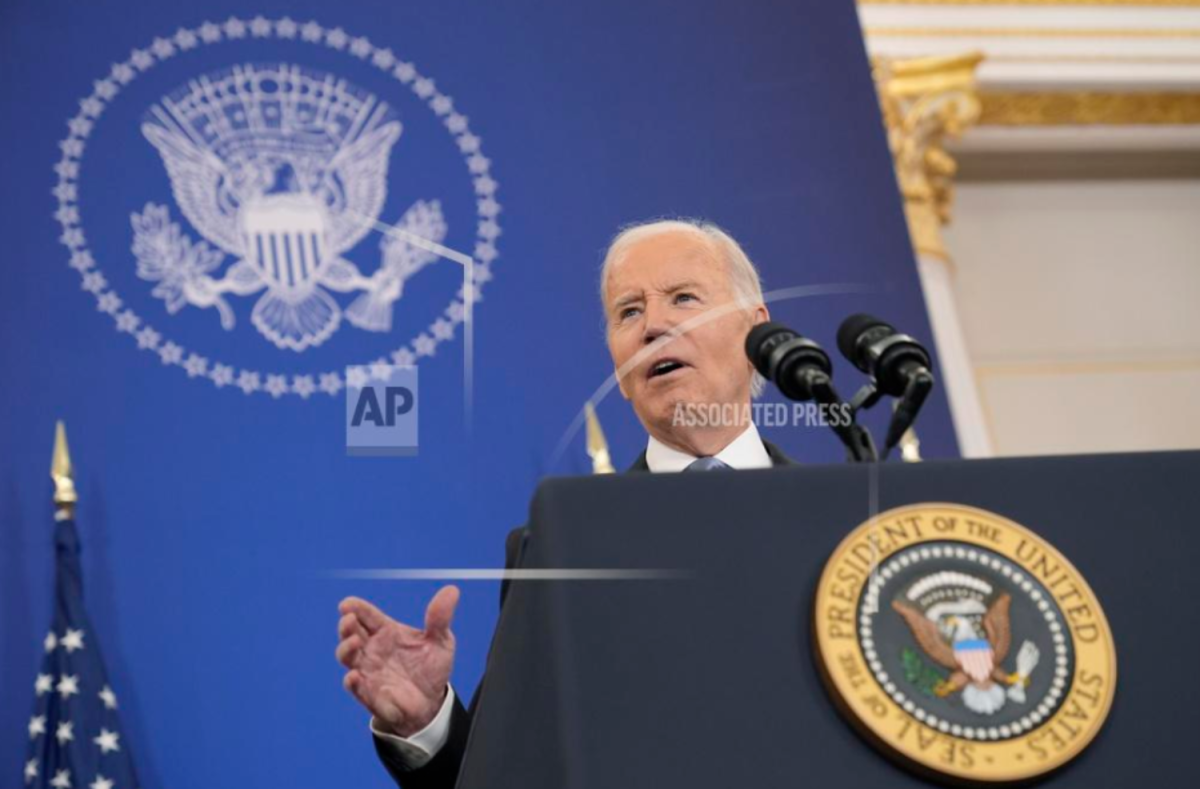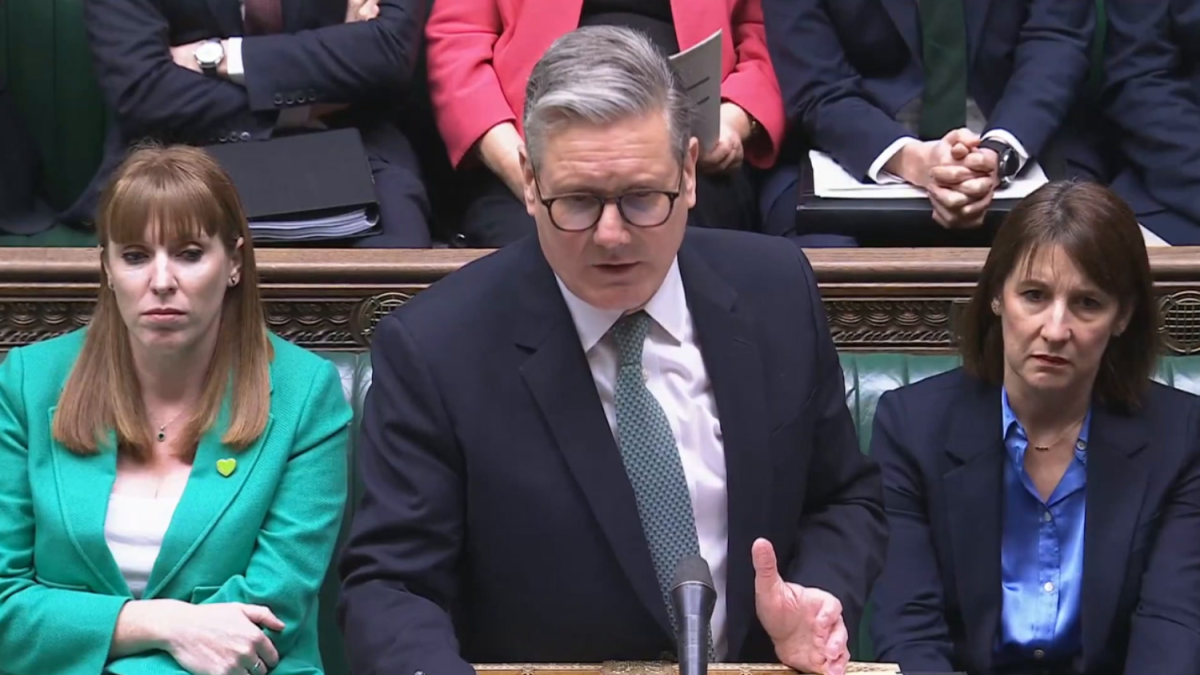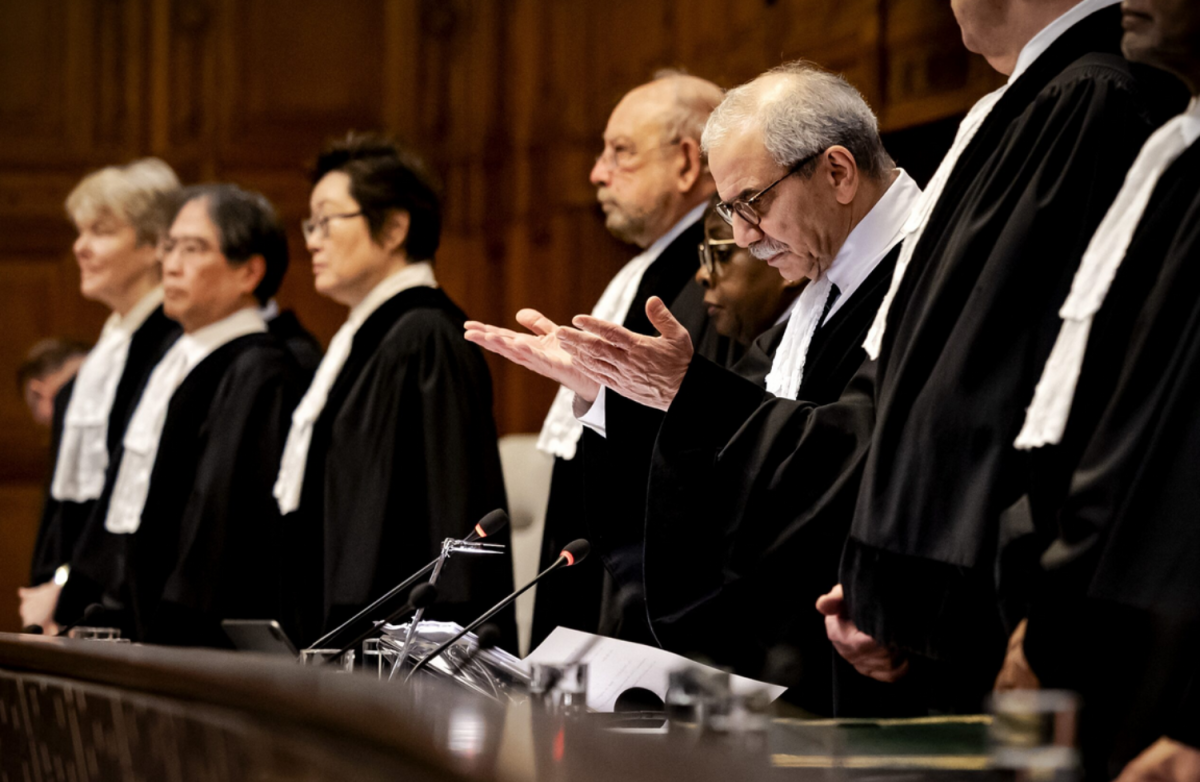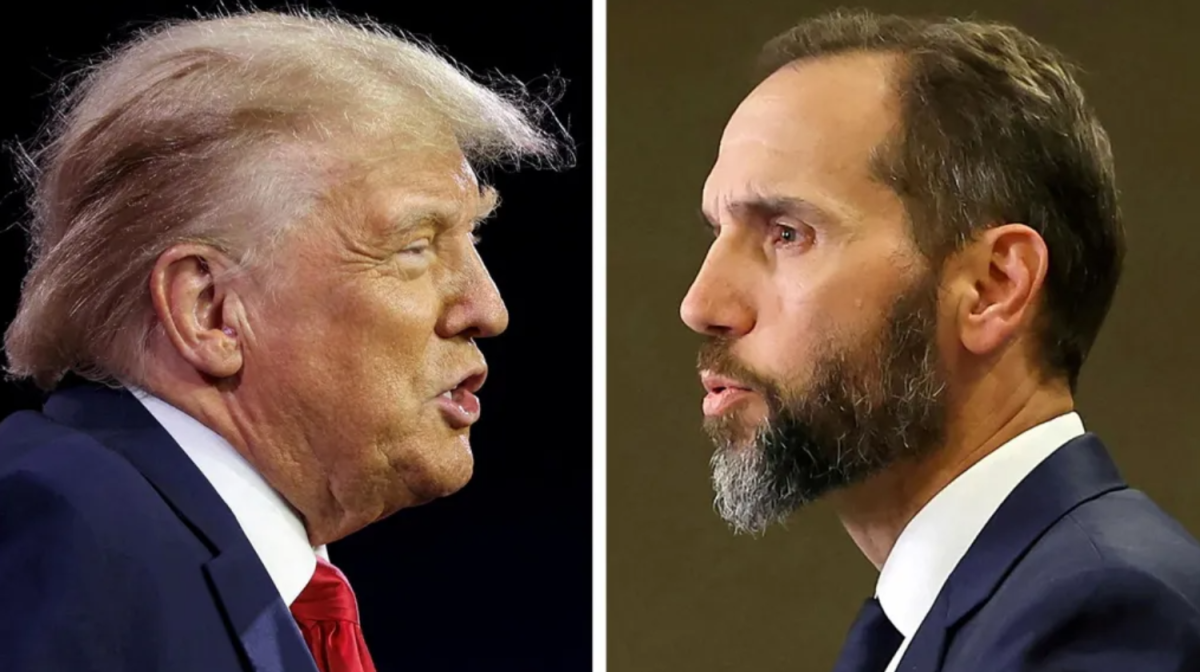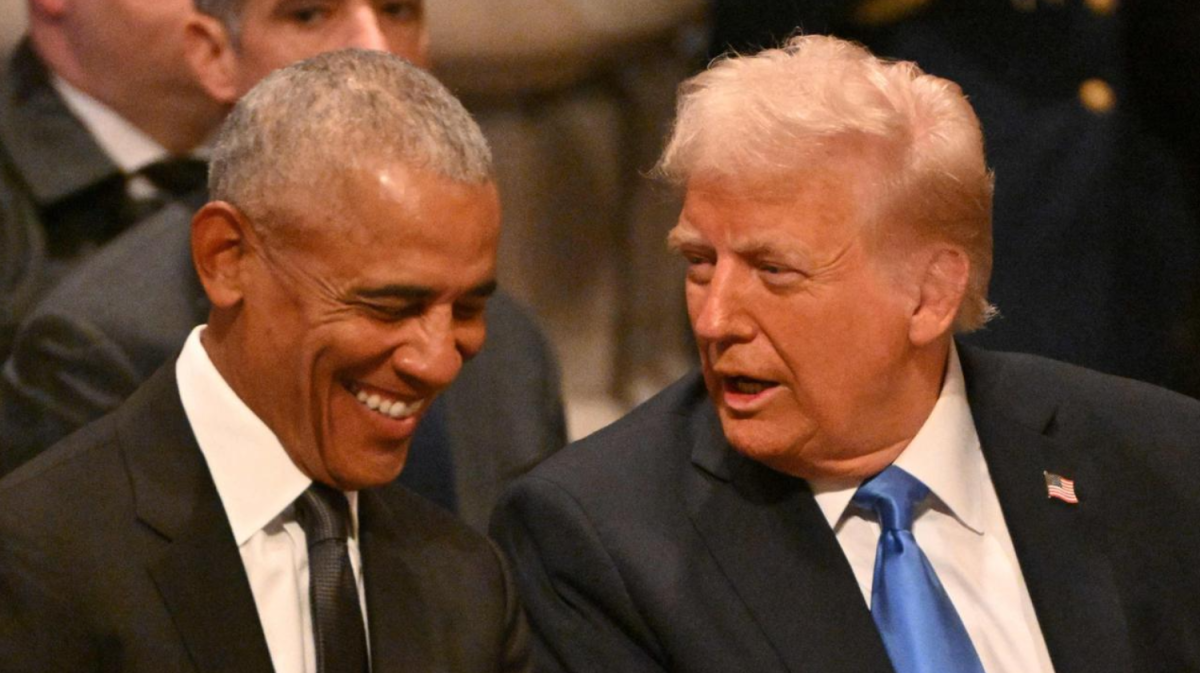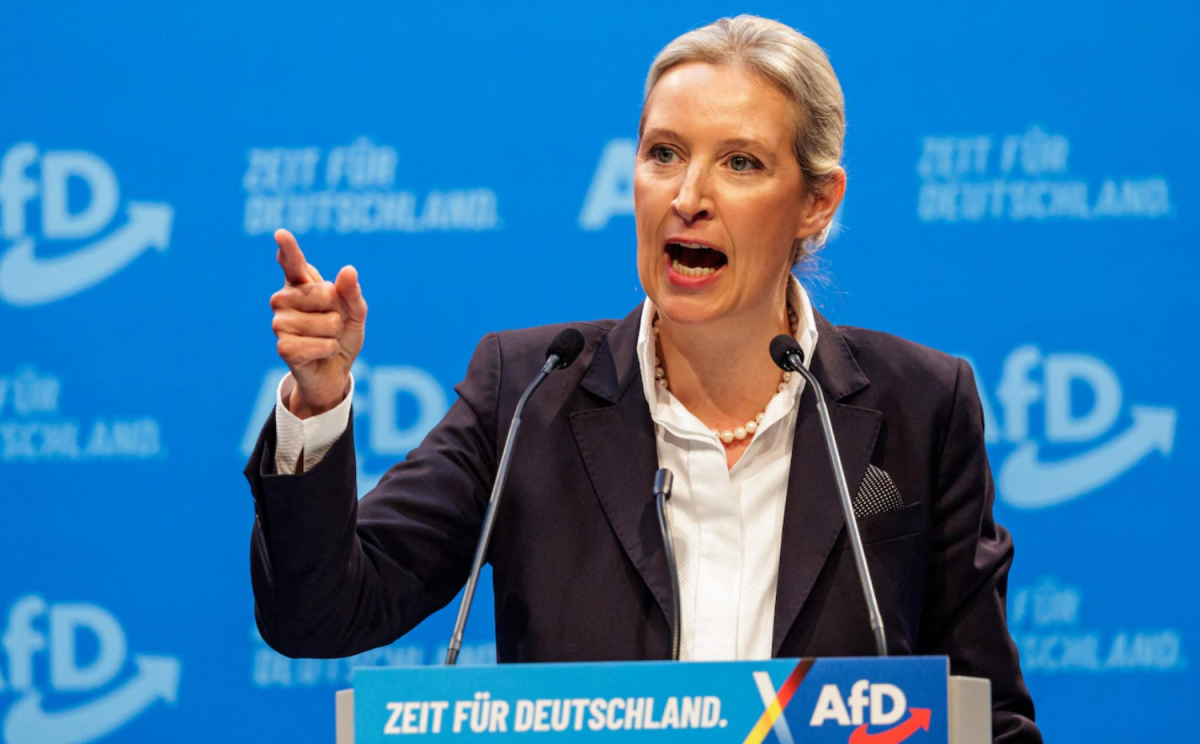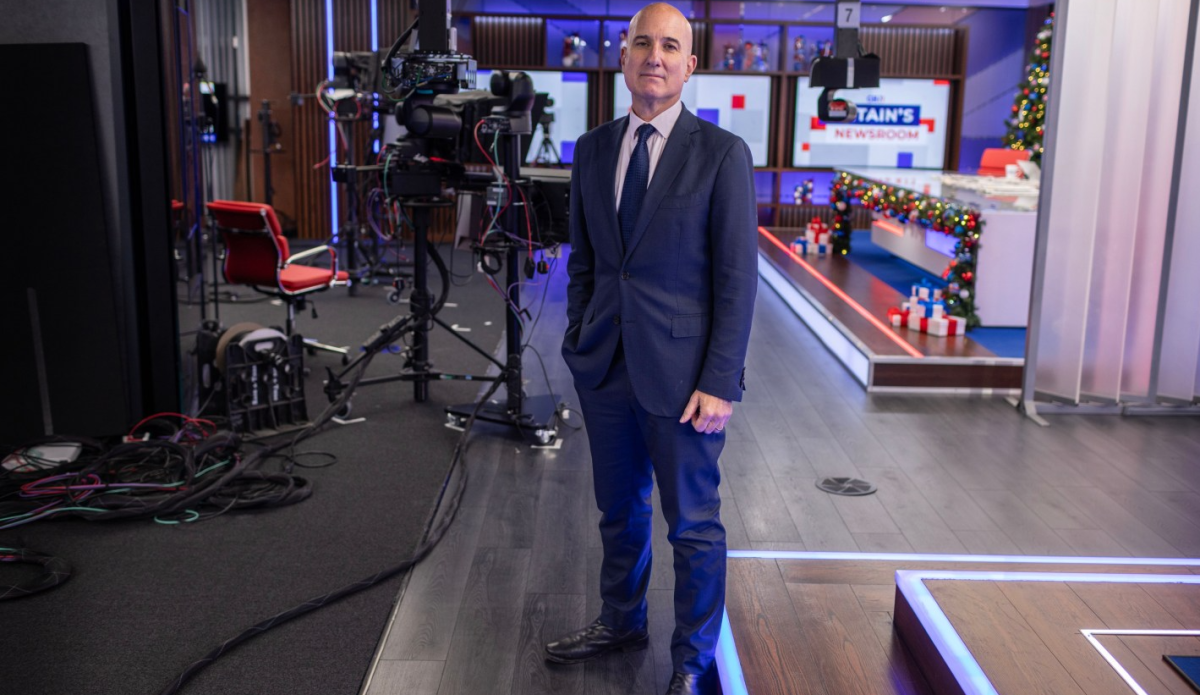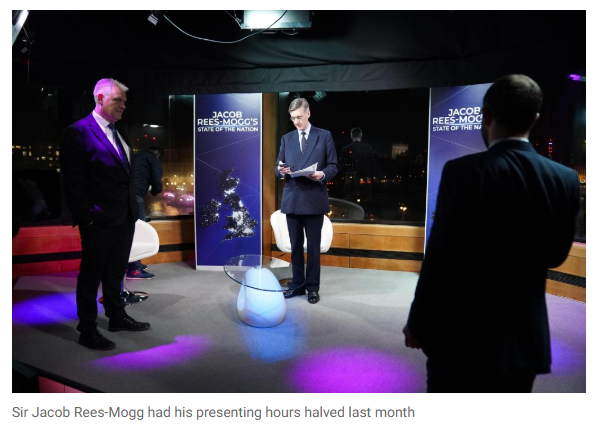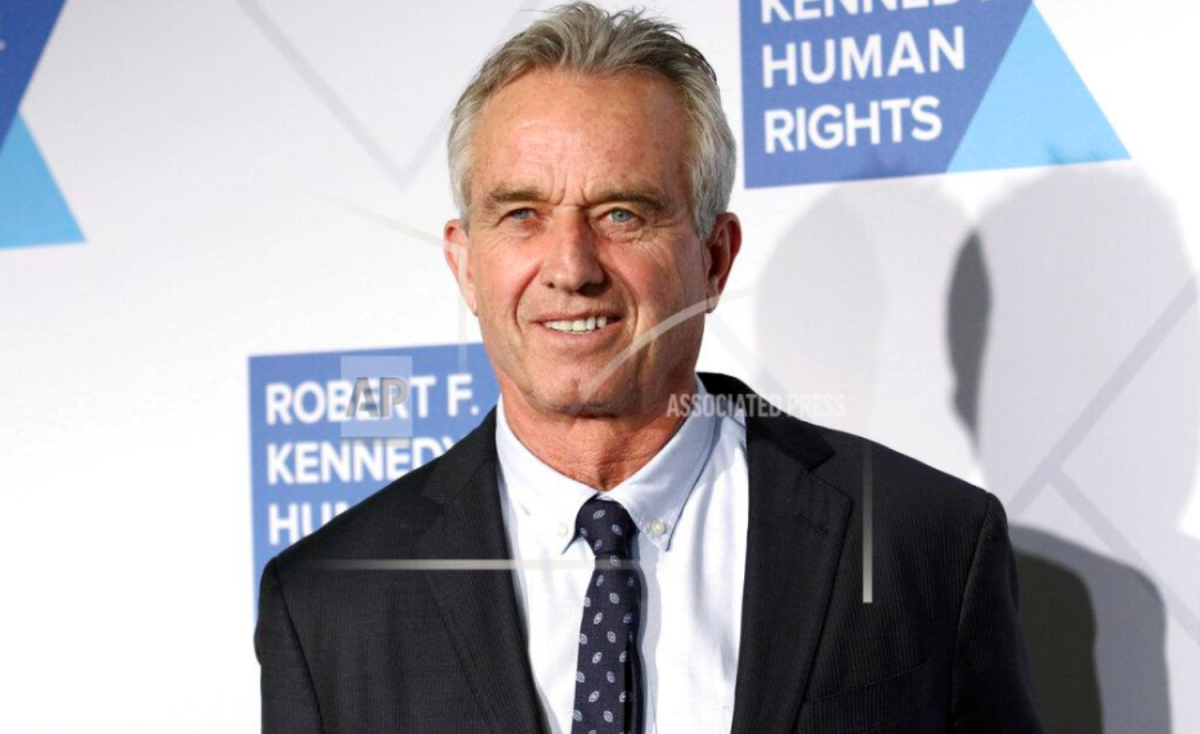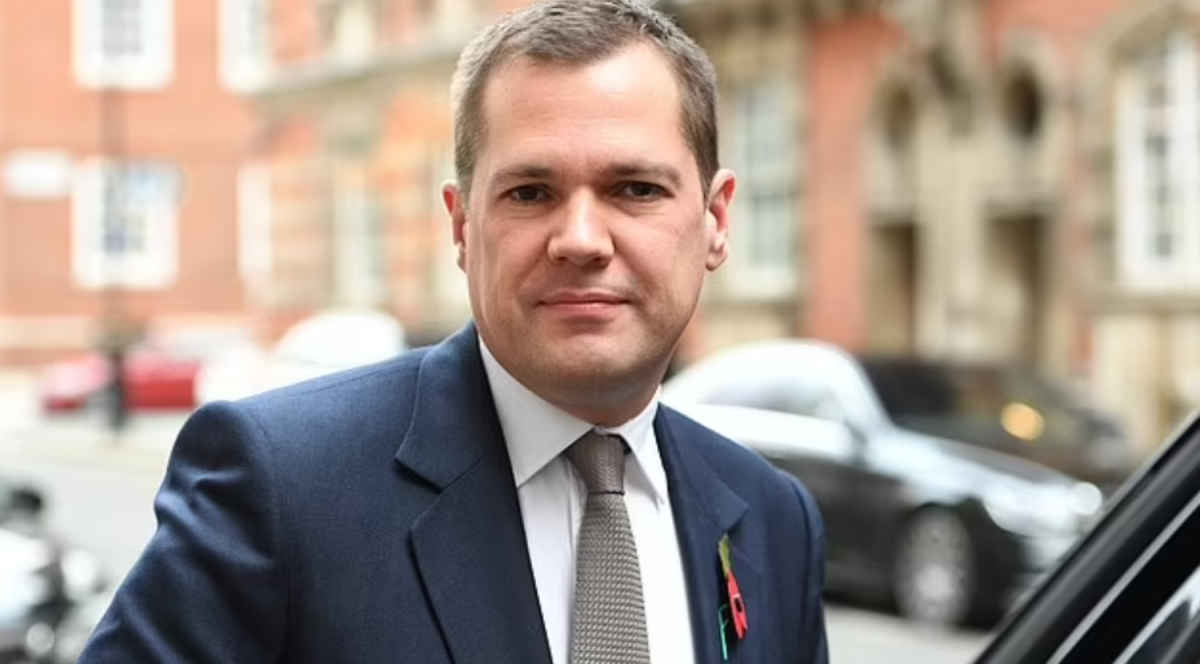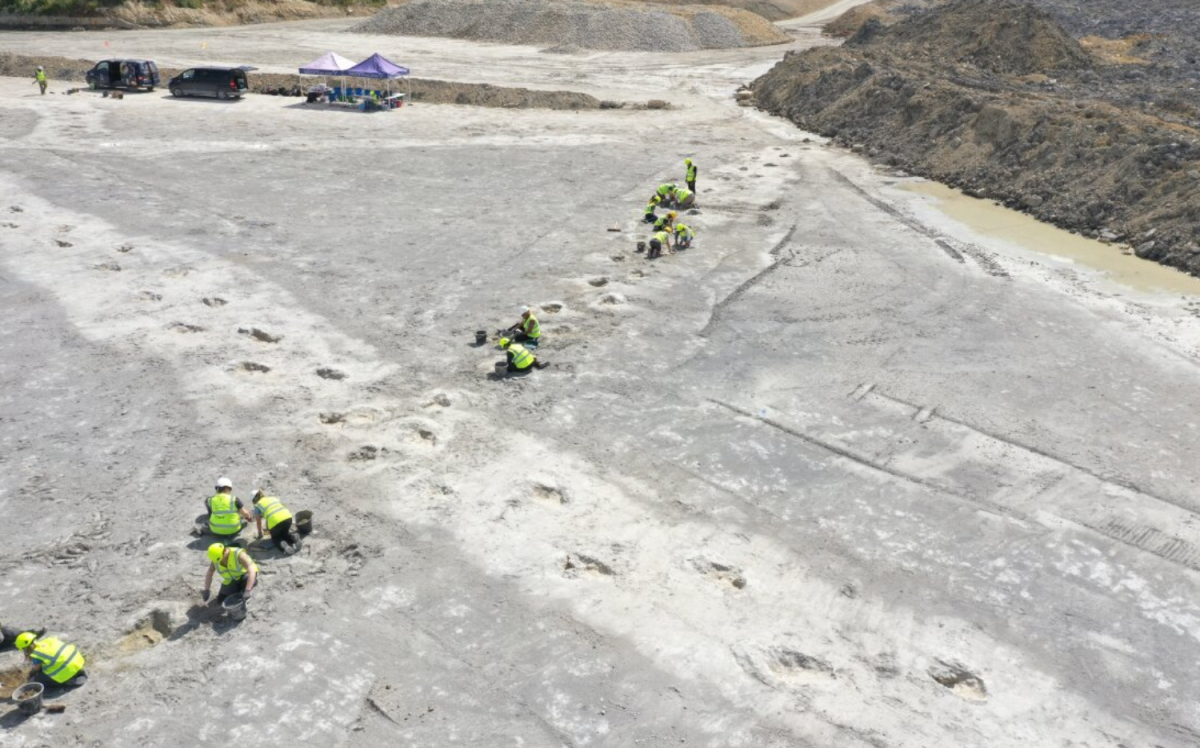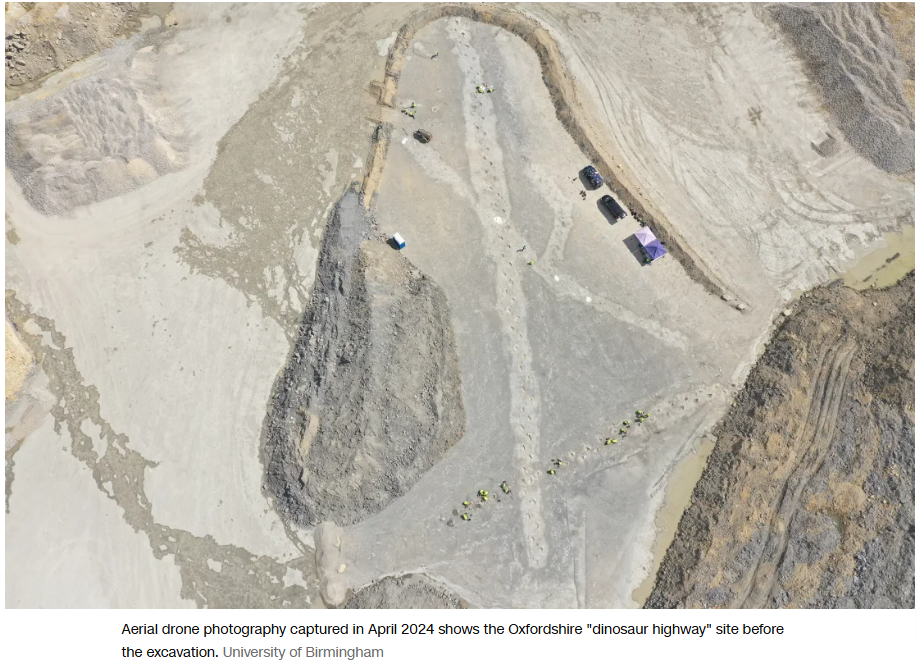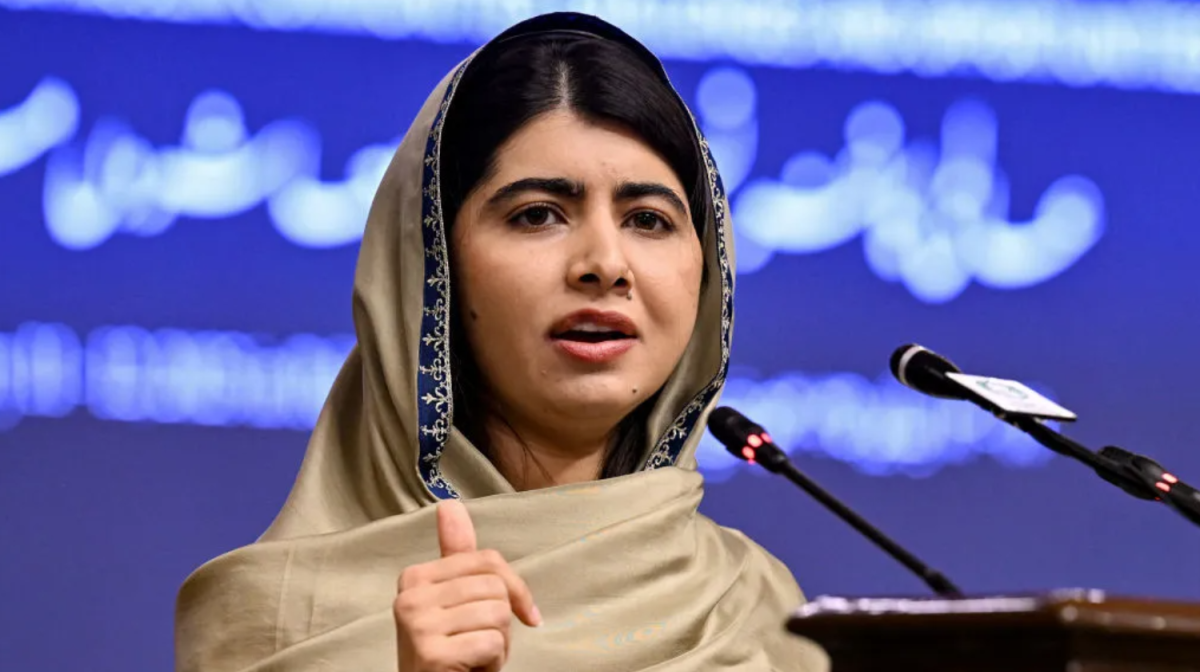-
Posts
10,758 -
Joined
-
Last visited
Content Type
Events
Forums
Downloads
Quizzes
Gallery
Blogs
Everything posted by Social Media
-
A Jamaican man convicted of rape has avoided deportation from the UK after judges ruled he could face persecution in his home country due to his bisexuality. The case has sparked debate after an upper tribunal upheld the decision to allow him to remain in the UK despite his criminal conviction and the Home Office's attempts to remove him. The man, identified only as AA, was convicted in 2018 for raping a sleeping woman at a party. At the time, AA claimed he did not understand that engaging in sexual activity with someone asleep constituted rape. He served a seven-year sentence for what a tribunal described as a "serious offence." Following his conviction, he expressed remorse, wrote an apology to the victim, and attended a victim awareness course. At the initial tribunal hearing, Judge Mary Mulready noted AA’s troubled past in Jamaica. As a teenager, he entered into a relationship with an older man, which he did not recognize as abuse at the time. That man was later murdered. During his adolescence in Jamaica, AA experienced repeated violent attacks, which left him with scars from assaults involving a machete, a metal bar, and even dogs. The tribunal also reviewed expert evidence on anti-LGBTQ+ attitudes in Jamaica. It found that AA would likely face significant discrimination and potentially violence if deported. Judge Mulready ruled that the man’s fear of persecution in Jamaica was “well-founded,” citing evidence of ingrained hostility toward LGBTQ+ individuals in the country. While Mulready expressed doubts about AA’s credibility in some aspects of his testimony, she acknowledged his participation in rehabilitation efforts, including the victim awareness course. She also noted that the threat of imprisonment acted as a deterrent for reoffending, even if AA lacked complete insight into his crime. In 2023, the case was reviewed by the upper tribunal, with Judge Melissa Canavan agreeing with the original decision. Canavan highlighted the “embedded nature of anti-gay and LGBTQI+ attitudes in Jamaica,” concluding that AA would likely face treatment similar to the violence he had endured in the past. The Home Office, which had sought to deport AA upon his release, expressed dissatisfaction with the ruling. A spokesperson stated, “We make no apology for wanting to remove foreign national offenders at the earliest opportunity. We work with law enforcement to ensure there is no barrier to deport foreign criminals, as it is in the public interest for these people to be removed swiftly.” While AA’s legal team emphasized the danger he would face in Jamaica, critics of the decision argue that public safety and accountability should take precedence. The case has reignited discussions about balancing human rights protections with the public interest in removing foreign offenders. Based on a report by The Times 2024-01-15
-
Gazprom, Russia’s state-owned gas giant, is preparing to lay off more than 1,500 employees at its central office in St. Petersburg as it deals with the loss of much of its European market. This comes as the company faces its first financial loss since 1999, driven by significant reductions in sales to Europe due to the ongoing conflict in Ukraine. The potential job cuts were outlined in a letter from Deputy CEO Elena Ilyukhina to Gazprom CEO Alexei Miller, reported by state news agency TASS. The letter, dated December 23 and made public by the media outlet 47news, proposes reducing the central office workforce by about 40%, from 4,100 to 2,500 employees. Ilyukhina noted that the wage bill for the unit had escalated to 50 billion roubles ($488 million). Gazprom, which employs approximately 498,000 people overall, confirmed the report through a company spokesperson contacted by Reuters. The company posted a loss of nearly $7 billion in 2023, marking its first loss in over two decades. This financial downturn was largely due to the drastic reduction in its European market share, following the halt of Russian gas exports via pipelines that cross Ukraine. The situation worsened when, on New Year's Day, Ukraine refused to renew a transit deal, effectively cutting off one of Gazprom’s major supply routes to Europe. This left the company with only one viable route to Europe, through Turkey. Gazprom, once a dominant force in Europe’s energy market, now finds its influence significantly diminished. Despite Gazprom’s challenges, Russia’s broader economy has shown resilience in adapting to Western sanctions imposed over the Ukraine conflict, with the national jobless rate at a historic low of about 2.4%. However, the country’s central bank has warned of potential economic overheating and rising inflation. Companies like Gazprom, heavily reliant on European markets, have been particularly impacted by these economic shifts. As Gazprom navigates these turbulent times, the proposed job cuts reflect broader pressures on the company to streamline operations and adjust to the new realities of a diminished presence in Europe’s energy landscape. Based on a report by Reuters 2024-01-15
-
The Village People, known for their iconic disco hits "YMCA" and "Macho Man," are set to perform at Donald Trump's inauguration festivities. Despite not supporting Trump in the election, the band decided to put politics aside for the occasion, recognizing the impact Trump has had on reviving their classic songs. Victor Willis, the frontman of the Village People, confirmed on social media that the group will perform at several parties in Washington, D.C., as Trump is sworn in for a second term on January 20. Willis, 73, acknowledged that their preferred candidate did not win the election, but emphasized that music should transcend political boundaries. "Music is to be performed without regard to politics," Willis wrote on Facebook. "Our song 'YMCA' is a global anthem that hopefully helps bring the country together after a tumultuous and divided campaign where our preferred candidate lost. Therefore, we believe it’s now time to bring the country together with music." This decision represents a significant shift for the band, who previously asked Trump to stop using their music during his first term. In 2020, Willis spoke out against Trump’s use of their songs, particularly after Trump called for a strong police response to Black Lives Matter protests near the White House, a stance Willis found troubling. By 2023, tensions escalated when the group threatened legal action against Trump after a Village People cover band performed at his Mar-a-Lago estate in Florida. A video of Trump dancing to "Macho Man" with a group dressed like the Village People circulated widely, sparking further controversy. Despite these past conflicts, "YMCA" and "Macho Man" remained fixtures at Trump rallies, with Trump's distinct dance moves to "YMCA" gaining viral attention. His dance became a social media phenomenon, imitated by sports stars and celebrities alike. The song's resurgence was so significant that it climbed back onto the Billboard charts, eventually reaching the No. 1 spot shortly after Trump's election victory. Willis has acknowledged the benefits the band has reaped from Trump’s affection for their music. In a social media post, he admitted receiving numerous complaints about Trump's adoption of their songs but also noted the renewed popularity of "YMCA." Willis added, "Trump seems to genuinely like 'YMCA' and he’s having a lot of fun with it." As the Village People prepare to take the stage at Trump's inauguration, their performance symbolizes a surprising intersection of music and politics, aiming to unite audiences through the enduring power of their disco hits. Based on a report by The Times 2024-01-15
- 204 replies
-
- 11
-

-

-
President Biden expressed confidence on Monday that his administration is leaving the country in a stronger global position than when he took office, emphasizing that the incoming Trump administration will inherit a "very strong hand to play" in addressing international challenges. In his final foreign policy address at the State Department, Biden highlighted his administration's achievements while acknowledging the obstacles that remain, including the ongoing conflicts in Ukraine and the Middle East. Reflecting on his tenure, he contrasted his approach to diplomacy with the "America first" policy that defined much of President-elect Trump's earlier administration. Biden spoke optimistically about the alliances and partnerships his administration strengthened, noting, "Even so, it's clear: My administration is leaving the next administration with a very strong hand to play. And leaving them an America with more friends and stronger alliances, whose adversaries are weaker and under pressure." A central focus of Biden's remarks was Russia's war in Ukraine. He pointed to the failure of Russia to achieve its strategic goals in the conflict, which he credited to the resilience of Ukraine and the united support of the international community. He urged the U.S. to leverage its current advantage to push for a "just and lasting peace for Ukraine." Biden also discussed progress toward stability in the Middle East, sharing hope for imminent developments in the region. "We are on the brink of a hostage release and ceasefire in Gaza," he said, emphasizing the importance of continued U.S. engagement in the region to achieve a "more stable, integrated Middle East." Reflecting on his administration's broader legacy, Biden underlined the value of collaboration and collective leadership on the global stage. "At our best, America leads not only by the example of our power, but the power of our example. The past four years we have used that power, not to go it alone, but instead to bring countries together," he said. As the Trump administration takes over, the durability of Biden's foreign policy strategies will be tested. The handoff marks a pivotal moment for the U.S. as it navigates geopolitical complexities with the tools and alliances Biden's team leaves behind. Based on a report by AXIOS 2024-01-15
-
Labour leader Keir Starmer is facing mounting pressure to initiate a national inquiry into grooming gangs, following calls from two Labour MPs in two days. Rotherham MP Sarah Champion, known for her decade-long advocacy on abuse issues, has joined the chorus, stating that only a comprehensive investigation into the failures of authorities will restore public faith in the safeguarding systems. Champion's call for action was echoed by Rochdale MP Paul Waugh, who expressed conditional support for an inquiry, emphasizing the importance of victim support and the need to avoid disrupting ongoing police investigations. Their statements have reignited a debate that gained traction last week when billionaire and Donald Trump ally Elon Musk commented on the issue, praising the MPs on his platform, X. Champion, whose constituency has been at the center of grooming gang scandals, declared that child sexual abuse is "endemic" in the UK and must be recognized as a national priority. She highlighted the necessity of understanding the nature of the crime and the systemic failures to protect children, stressing that public trust hinges on addressing these issues comprehensively. Waugh, in an interview with BBC Politics North West, noted his openness to an inquiry but stressed the need for careful consideration of victims' perspectives and the potential trauma they might endure by recounting their experiences repeatedly. He also warned against any inquiry that might interfere with live investigations. The push for an inquiry gained further momentum over the weekend when Labour MP Dan Carden became the first from his party to advocate openly for such a probe. Carden, representing Liverpool, urged Starmer to leverage the full power of the state to ensure justice for the victims, emphasizing the public’s compassion and demand for accountability. Downing Street acknowledged the significance of Champion's stance, given her extensive background in child protection issues. However, the government reiterated its focus on implementing the recommendations from a 2022 report on child sexual abuse rather than launching a new inquiry. It maintained that any action would be guided by the voices of victims and survivors. As the debate intensifies, Starmer faces a critical decision on whether to heed the growing calls within his party and the public for a new inquiry, balancing the need for justice with the sensitivity of ongoing investigations and the impact on victims. Based on a report by The Independent 2024-01-15 Related Topics: The Silenced Truth: How Political Correctness Delayed Justice for Grooming Victims Britons Overwhelmingly Support a New Grooming Gang Inquiry Romanian Grooming Gang Convicted of Sexually Exploiting Women in Dundee Ethnicity of Grooming Gangs, Says Whistleblower’s Aide Grooming Networks Persist in Oxford, Warns Former Investigator Convicted Rochdale Grooming Gang Leader Still in the Town & not Deported Starmer Condemns 'Lies and Misinformation' Over Child Sexual Abuse UK Ex-MP Claims Grooming Gang Ethnicity Was Suppressed to Protect Votes Elon Musk Advocates for Tommy Robinson’s Release Amid Criticism of UK Leadership Kemi Badenoch Urges National Inquiry into UK Grooming Scandal
-
In a significant political shift, Lebanese President Joseph Aoun appointed Nawaf Salam, the head of the International Court of Justice (ICJ), as the new prime minister. This move underscores a transformation in the country's sectarian power dynamics, especially in light of Hezbollah's diminished influence following its military losses against Israel and the fall of its Syrian ally, Bashar al-Assad. Salam, currently abroad, was backed by 84 of Lebanon's 128 lawmakers, with President Aoun summoning him to form the government upon his return. This decision marks a blow to Hezbollah, as many lawmakers, including Christian and Druze factions, and key Sunni Muslim MPs, even some allied with Hezbollah, supported Salam. Hezbollah and its Shi'ite ally, the Amal Movement, refrained from endorsing any candidate, signaling their reluctance to join Salam's administration. Senior Hezbollah figure Mohammed Raad criticized the move, accusing opponents of fragmentation and exclusion. He lamented that despite Hezbollah's cooperation in electing Aoun as president, their efforts were met with betrayal. The appointment of Salam, following Aoun’s election, represents a shift in Lebanon's political landscape, traditionally dominated by Hezbollah. This change is also influenced by Aoun's strong ties with the United States and Saudi Arabia. Lebanon’s power-sharing system requires the prime minister to be Sunni, the president a Maronite Christian, and the speaker of parliament a Shi'ite Muslim. Aoun, after consultations with parliament, had to select the candidate with the most votes. Hezbollah's lawmakers delayed their meeting with Aoun, possibly as they saw Salam's momentum. Hezbollah expected Najib Mikati’s reappointment as part of a prior understanding, but the swift backing for Salam altered those plans. The new administration faces enormous challenges, including rebuilding war-torn areas, implementing long-overdue reforms to rejuvenate Lebanon's economy, and addressing the financial system's collapse in 2019. Aoun, as a former army commander, played a crucial role in the US-mediated ceasefire between Israel and Hezbollah, which mandated the Lebanese army's deployment in southern Lebanon as both sides withdrew. Raad indicated Hezbollah would watch Salam's government’s actions closely, emphasizing a calm approach for the national interest. The backdrop of this political upheaval is the conflict that erupted after Hamas’s attack on Israel in October 2023, which saw Hezbollah escalating attacks on Israeli borders, prompting a robust response from Israel. The conflict led to significant casualties, with Israel decimating Hezbollah's leadership. The IDF reported around 3,500 Hezbollah operatives killed, alongside casualties from other groups and civilians in Lebanon. This conflict and Hezbollah's weakened state have reshaped Lebanon's political arena, paving the way for figures like Salam to emerge in leadership roles. Based on a report by AFP | TOI 2024-01-15
-
The disturbing case of a homeless man wielding a blowtorch, suspected of arson during the Los Angeles wildfires, has reignited intense debate over the city’s approach to its worsening homelessness crisis. This incident highlights the escalating challenges posed by an influx of homeless encampments, which have been linked to a dramatic rise in fires across the city. The scale of the issue has even reached the U.S. Supreme Court, which ruled in June that municipalities can arrest individuals camping on the streets. However, Los Angeles Mayor Karen Bass dismissed the ruling as political, stating, “The only way to address this crisis is to bring people indoors with housing and supportive services. In the City of Los Angeles, we will continue leading with this approach.” Despite her initial stance, Bass has signaled a willingness to collaborate with President-elect Donald Trump on homelessness solutions, including moving unhoused individuals to shelters on federal property. This shift comes amid growing public frustration and mounting incidents that highlight the dire consequences of the current crisis. One such incident involved a fiery explosion at a homeless encampment in June that injured eleven Los Angeles firefighters, one of whom suffered severe facial, head, and ear trauma. LAFD Captain Erik Scott voiced his frustration, stating, “It was caused by the homeless, and we nearly lost a firefighter over this. I’m asking the city of Los Angeles, where is the outrage for what’s happening in the city, because what we’re doing today is not working.” The fire department has since launched targeted efforts to mitigate risks posed by illegal encampments in high-risk fire zones. Despite these measures, alarming incidents continue to emerge. Last Thursday, Juan Manuel Sierra-Leyva, an undocumented migrant from Mexico, was apprehended by residents after allegedly using a blowtorch to ignite debris near a massive wildfire. While arrested, he has not yet been charged with arson. In a parallel case, LA County District Attorney Nathan Hochman announced charges against nine individuals for looting evacuated homes and another for arson. Separately, Jose Escobar faces up to nine years in prison for allegedly starting a fire at Pioneer Park, though it was unrelated to the current wildfires. Former Los Angeles Sheriff’s Department Chief Patrick Jordan took to social media to stress the broader implications, stating, “50% of the fires in Los Angeles are homeless related, costing LA hundreds of millions. A third of all calls involve arson. It doesn’t take a rocket scientist to figure out, we reduce the homeless problem, we reduce fire risks in Los Angeles.” For many residents, like Jeanne Rice, the crisis has made daily life increasingly precarious. Speaking after a recent neighborhood fire, she lamented, “We can’t even walk around the neighborhood safely anymore.” As homelessness continues to strain public safety and resources, the city of Los Angeles faces mounting pressure to implement more effective solutions. Based on a report by NYP 2024-01-15
-
In the wake of new U.S. sanctions announced on January 10, at least 65 oil tankers have dropped anchor across various global locations, including the coasts of China and Russia. Ship tracking data analyzed on Monday revealed this widespread disruption, underscoring the ripple effects of the latest measures targeting Russian oil producers and vessels. According to MarineTraffic and LSEG data, five of these stationary tankers are located near Chinese ports, while another seven have anchored off Singapore. Additional vessels have halted operations near Russia, particularly in the Baltic Sea and the Far East. The sanctions, unveiled by the U.S. Treasury, aim to curb the revenues Moscow uses to fund its ongoing conflict in Ukraine. Among the targets are Russian oil producers Gazprom Neft and Surgutneftegaz, as well as 183 vessels involved in shipping Russian oil. The implications of these sanctions have been immediate and significant. Tankers previously affected by earlier U.S. sanctions continue to face trading restrictions, while an additional 25 oil tankers remain stationary in areas such as Iranian ports and near the Suez Canal. In some cases, ports have preemptively responded to the sanctions. Shandong Port Group in China, for instance, has prohibited tankers under U.S. sanctions from docking at its facilities, according to traders last week. This move adds further complications to an already strained supply chain. The broader impact on the global oil tanker fleet is notable. Analysts estimate that approximately 10% of the global fleet is now under U.S. sanctions. Omar Nokta, an analyst at Jefferies, commented, "The effect of these sanctions should be supportive to the tanker market as vessel supply in the broader fleet shrinks, but the real potential strength would come once other exporters make up for the lost volumes." The sanctions are already influencing market dynamics. Average daily earnings for supertankers increased by more than 10% on Monday, reaching approximately $26,000. This surge reflects tightening vessel supply, as charterers scrambled to secure ships immediately following the sanctions' announcement. "Increased demand for exports to India and China from outside Russia will increase non-sanctioned tanker demand," noted trade analytics platform Kpler on Monday. As the global oil trade continues to adjust to these sanctions, the strain on tanker availability is likely to persist, reshaping market trends and creating new challenges for the industry. Based on a report by Reuters 2024-01-15
-
Donald Trump raged against special counsel Jack Smith's report in a late night rant to Truth Social shortly after it was released. Smith stood by his decision to bring charges against Donald Trump and said he would have been convicted had he not won the election in a much-anticipated report. 'The throughline of all of Mr. Trump's criminal efforts was deceit - knowingly false claims of election fraud - and the evidence shows that Mr. Trump used these lies as a weapon to defeat a federal government function foundational to the United States' democratic process,' the report states. The comprehensive report, coming just days before Trump is to return to the White House on January 20, focuses fresh attention on his extensive but failed effort to cling to power in 2020. Trump has already responded to its release with an infuriated post to social media. Trump has already hit back at the report in a Truth Social post at around 1:41am, writing: 'Deranged Jack Smith was unable to successfully prosecute the Political Opponent of his 'boss,' Crooked Joe Biden, so he ends up writing yet another 'Report' based on information that the Unselect Committee of Political Hacks and Thugs ILLEGALLY DESTROYED AND DELETED, because it showed how totally innocent I was, and how completely guilty Nancy Pelosi, and others, were. The president-elect then followed it up with two more missives to his social media platform. 'To show you how desperate Deranged Jack Smith is, he released his Fake findings at 1:00 A.M. in the morning. Did he say that the Unselect Committee illegally destroyed and deleted all of the evidence.' He followed it up with his trademark: 'MAKE AMERICA GREAT AGAIN!' The 137-page document is expected to be the final Justice Department chronicle of the probes. Smith, who resigned on Sunday after completing two criminal investigations, wrote to Attorney General Merrick Garland that he believed had Trump stood trial on the charges, he would have been convicted. 'The department's view that the Constitution prohibits the continued indictment and prosecution of a president is categorical and does not turn on the gravity of the crimes charged, the strength of the government's proof or the merits of the prosecution, which the office stands fully behind,' Smith wrote. 'Indeed, but for Mr. Trump's election and imminent return to the presidency, the office assessed that the admissible evidence was sufficient to obtain and sustain a conviction at trial,' he added. Trump called Smith 'a lamebrain prosecutor who was unable to get his case tried before the Election, which I won in a landslide. THE VOTERS HAVE SPOKEN!!!' Smith wrote the report, which was transmitted to Congress early Tuesday after a judge refused to block its release. It describes prosecutors' charging decisions in the case that resulted in Trump being indicted for taking a trove of national security documents to Mar-a-Lago. They also include the decision to charge Trump with heading a conspiracy to overturn the 2020 election. The document includes for the first time a detailed assessment from Smith about his investigation, as well as a defense by Smith against criticism by Trump and his allies that the investigation was politicized. Based on a report by Daily Mail 2024-01-14
-
In a surprising escalation of tensions, Steve Bannon, the right-wing podcaster and former adviser to Donald Trump, has vowed to oust billionaire Elon Musk, a high-profile Trump ally, from political influence by the president-elect’s upcoming inauguration. Bannon, who served as CEO of Trump’s 2016 campaign and as a key figure in his first administration, has been a vocal critic of Musk despite their shared allegiance to Trump. Musk, the CEO of Tesla and SpaceX, donated over $250 million to Trump’s 2024 campaign and has been appointed to co-lead the Department of Government Efficiency (DOGE) alongside biotech entrepreneur Vivek Ramaswamy. In a recent interview with Italy’s *Corriere della Sera*, Bannon lashed out at Musk, calling him “a truly evil guy, a very bad guy,” and vowed to “run Musk out of here by Inauguration Day.” He added, “He will not have a blue pass to the White House, he will not have full access to the White House, he will be like any other person.” This clash stems from Musk’s support of the H-1B visa program, which allows U.S. companies to hire foreign workers in specialized fields. Trump has aligned with Musk on this issue, putting him at odds with Bannon and other Make America Great Again (MAGA) loyalists, who have long advocated for stricter immigration controls. Bannon’s remarks come in the wake of controversy over Trump’s appointment of Indian-born entrepreneur Sriram Krishnan as a senior policy adviser on artificial intelligence (AI). Conservative activist Laura Loomer criticized the decision, reigniting debates about the influence of immigration policies within the MAGA movement. Musk, a South African native who became a U.S. citizen, has publicly defended legal migration, citing his own experience with the H-1B program. In December, he took to X (formerly Twitter) to express his views, writing, “The reason I'm in America along with so many critical people who built SpaceX, Tesla, and hundreds of other companies that made America strong is because of H1B. Take a big step back and F*** YOURSELF in the face. I will go to war on this issue the likes of which you cannot possibly comprehend.” Bannon responded by sharing a screenshot of Musk’s post on Gettr, mocking him with the caption, “Someone please notify ‘Child Protective Services’— need to do a ‘wellness check’ on this toddler.” Musk’s reliance on the H-1B program, both personally and professionally, has fueled criticism from MAGA stalwarts like Bannon and Loomer. Bannon has accused Musk and his tech allies, including PayPal co-founder Peter Thiel, of exploiting the immigration system for personal gain. This deepening rift among Trump’s allies underscores broader tensions within the Republican Party, as factions grapple with differing visions for immigration policy and economic nationalism. As the inauguration approaches, the fallout from this feud may have lasting implications for Trump’s second administration and its approach to both governance and alliances. Neither Musk nor Trump’s transition team has commented on Bannon’s statements. Newsweek reached out to both parties but had not received a response. Based on a report by Newsweek 2024-01-14
-
President-elect Donald Trump recently shared a spoofed video on social media, humorously targeting Vice President Kamala Harris. The video, which Trump posted on Truth Social, portrays a fictitious conversation between himself and former President Barack Obama during Jimmy Carter’s funeral. In the clip, an AI-generated voiceover dubs their conversation, creating a spoof that showcases the two political figures as unlikely conversationalists. The video begins with Obama and Trump seated next to each other, casually exchanging pleasantries. "I knew you’d win," Obama opens, to which Trump quips back, "Anyone could beat her," clearly referring to Harris. While the actual content of their real-life discussion remains unknown, the playful nature of the video has sparked curiosity and amusement, leaving many to wonder what the two may have truly talked about during their encounter. Based on a report by Sky News 2024-01-14
-
As the German election race heats up, the co-leader of the Alternative for Germany (AfD) party, Alice Weidel, has stirred controversy by endorsing a "remigration" policy. Weidel announced plans for mass deportations and a total closure of Germany’s borders if the AfD secures power in the upcoming election. In unveiling the party’s manifesto, Weidel pledged large-scale repatriations and a complete border shutdown within the first 100 days of an AfD-led government. Speaking to supporters in Riesa, an eastern German town recently marred by anti-AfD protests, Weidel emphasized the contentious term "remigration" to describe the policy. “Repatriations on a large scale” would be carried out, she stated, adding, “If this must be called ‘remigration’, then let it be called ‘remigration.’” Her remarks were met with enthusiastic cheers from supporters and vocal protests outside the venue. The term "remigration" refers to the forced return of migrants to their countries of origin, irrespective of their current citizenship status. Critics argue that the policy resembles ethnic cleansing, sparking widespread debate across Germany. Investigative reports recently surfaced, alleging a secret meeting near Potsdam involving far-Right groups, including senior AfD members, to discuss the expulsion of millions of people, including "non-assimilated" German citizens. This policy stance has led to friction even among European far-Right allies, with France’s National Rally, headed by Marine Le Pen, distancing itself by expelling the AfD from its European Parliament group earlier this year. Despite being labelled a suspected extremist group by Germany’s domestic intelligence agency, the AfD has seen a surge in popularity. Recent polls position the AfD in second place with around 20 percent support, closing the gap to the leading Christian Democrats (CDU), who hold just over 30 percent. Nonetheless, a long-standing agreement among Germany’s major parties to avoid collaboration with the AfD makes it unlikely they will enter government. This scenario leaves the CDU likely needing to form a coalition with one of the Left-wing parties, either Chancellor Olaf Scholz’s Social Democrats or the Greens, both vying for third place with support hovering around 15 and 14 percent, respectively. As Germany grapples with growing public demand for stricter immigration policies, the election outcome remains uncertain, with the AfD’s controversial stance potentially reshaping the country’s political landscape. Based on a report by Daily Telegraph 2024-01-14
-
An anti-Israel activist has reignited controversy by reposting inflammatory messages on social media ahead of Australia Day. Elsa Tuet-Rosenberg, previously implicated in sharing the personal details of over 600 Jewish creatives online, reposted calls encouraging Australians to burn the national flag and deface colonial memorials, branding the holiday "Invasion Day." Among the posts she shared was one that stated, “It’s ok to resist a colonial force by any means necessary. Have as much fun as you can.” Another urged individuals to engage in acts such as setting fire to Cook's Cottage, destroying colonial monuments, and toppling statues. One repost read, “Burn them all... Behead their statues and topple them at their base. F**k up their dumb war memorials which glorify western imperialism while refusing to acknowledge the frontier wars.” The rhetoric drew swift condemnation from the Australian Jewish Association (AJA). AJA CEO Robert Gregory criticized the posts, stating, “This is a reminder that those who target the Jewish community and Israel also hate Australia. We must all defend Western civilization against those who seek to destroy it. The attack on the War Memorial is particularly disgraceful and disrespects the memory of those who died for our freedom.” Tuet-Rosenberg’s controversial actions are not new. She co-founded Hue: Colour the Conversation, an anti-racism advisory business that faced backlash last year. The company was dropped from facilitating a North Sydney Council event after The Daily Telegraph brought attention to her involvement. Following the controversy, North Sydney Mayor Zoë Baker canceled the event, apologizing for the distress caused. In an email to a concerned resident, Mayor Baker said, “I have asked Council’s CEO to review grant assessment procedures to ensure that this does not happen again and that any procurement includes due diligence on any provider.” Tuet-Rosenberg was also linked to a campaign that resulted in the release of personal details of Jewish creatives, which sparked anti-Semitic harassment, death threats, and vandalism. Shops were marked with graffiti reading “No Jews.” While it is not alleged that Tuet-Rosenberg personally engaged in harassment, her involvement in the campaign has drawn significant criticism. When approached for comment on the recent controversy, Tuet-Rosenberg responded to questions about her encouragement to burn flags, stating, “Cause all colonies should burn to the ground.” The divisive messages have amplified calls for unity and respect amidst growing tensions. Critics argue that her rhetoric threatens social cohesion and disrespects the nation’s heritage, particularly the sacrifices made by those commemorated in war memorials. Based on a report by Daily Telegraph Australia 2024-01-14
-
US Vice President-elect JD Vance has shed light on the implications of Donald Trump’s recent warning that “all hell will break loose” if the remaining hostages in Gaza are not released by January 20. Speaking on *FOX News Sunday,* Vance explained the strategy behind the Trump administration’s ultimatum, emphasizing the need to dismantle Hamas’s leadership and infrastructure. According to the Israel Defense Forces (IDF), two of Hamas’s 24 battalions remain intact in central Gaza, where they are believed to be holding 98 hostages. The IDF has exercised caution in the area, avoiding large-scale operations to minimize the risk to hostages, some of whom have already been killed during prior operations or executed by Hamas when they feared imminent attacks. While Vance refrained from detailing the nature of financial sanctions planned under the Trump administration, the outgoing Biden administration has already imposed significant sanctions on Hamas and issued arrest warrants for several of its leaders. The incoming vice president credited Trump’s firm rhetoric with advancing negotiations for the hostages’ release. “We’re hopeful there’s going to be a deal struck toward the very end of Biden’s administration — maybe the last day or two,” Vance stated. “But regardless of when that deal is struck, it will be because people are terrified that there are going to be consequences for Hamas.” Trump’s warnings and the ongoing diplomatic efforts underscore the international stakes of the Gaza conflict and the urgent need to secure the hostages’ safe return while addressing the broader threat posed by Hamas. Based on a report by The Australian 2024-01-14
-
In Kennesaw, Georgia, a city ordinance dating back to the 1980s requires residents to own firearms and ammunition. This unique law has sparked both pride and controversy, making the town an unusual case in the national gun debate. The law, officially enacted in 1982, states, “In order to provide for and protect the safety, security and general welfare of the city and its inhabitants, every head of household residing in city limits is required to maintain a firearm, together with ammunition.” Despite its broad phrasing, the ordinance includes exceptions for those with mental or physical disabilities, felony convictions, or religious objections. “It’s not like you go around wearing it on your hip like the Wild Wild West,” said Derek Easterling, the three-term mayor of Kennesaw, in an interview with BBC News. He clarified that the law is not aggressively enforced, noting, “We’re not going to knock on your door and say, ‘Let me see your weapon.’” To his knowledge, there have been no arrests or prosecutions for violating the law since its inception. Opinions about the ordinance vary. Some residents see it as a source of pride and credit it with maintaining safety in their community. According to data from the Kennesaw Police Department, there were no homicides in the town in 2023, though there were two gun-related suicides. At a local pizza restaurant, patrons argued, “If anything, criminals need to be concerned, because if they break into your home, and you’re there, they don’t know what you got.” Others emphasize that the low crime rate stems more from the town’s culture than the guns themselves. “It’s the attitude behind the guns here in Kennesaw that keeps the gun crimes down, not the guns,” said Blake Weatherby, a groundskeeper at the Kennesaw First Baptist Church. He added, “It doesn’t matter if it’s a gun or a fork or a fist or a high heel shoe. We protect ourselves and our neighbors.” Weatherby, who once owned over 20 firearms, said he now owns none. Pat Ferris, a city council member who joined shortly after the law’s passage, described it as “more of a political statement than anything.” He admitted he’s unsure how many residents are even aware of the ordinance’s existence. The law was, in part, a reaction to Morton Grove, Illinois, becoming the first U.S. city to ban gun ownership. Kennesaw’s ordinance served as a counterpoint, highlighting differing regional attitudes toward firearms. Other U.S. cities, including Gun Barrel City, Texas; Virgin, Utah; Nelson, Georgia; and Nucla, Colorado, have since adopted similar laws. City council member Madelyn Orochena described Kennesaw’s gun law as “a weird little factoid about our community,” adding, “Residents will either roll their eyes in a bit of shame or laugh along about it.” Based on a report by NYP 2024-01-14
-
Angelos Frangopoulos, the chief executive of GB News, resists attempts to label the TV channel as "right of centre," instead emphasizing its commitment to values and serving its audience. Since its launch on June 13, 2021, GB News has weathered challenges ranging from technical glitches and advertising hesitancy to high-profile departures. Yet, with the financial support of hedge fund tycoon Sir Paul Marshall and the Legatum Institute think tank, the channel has emerged as a force to be reckoned with in British broadcasting. Critics were quick to dismiss GB News in its early days, but it has since carved out a significant niche. While Sky News continues to dominate with a monthly reach of approximately 8 million viewers compared to GB News’s 3.5 million, December 2023 figures reveal GB News attracting an average of 66,000 live viewers, narrowly surpassing Sky News’s 63,500. This growth underscores its impact on viewers and the political landscape alike. The channel's programming often draws scrutiny, with some accusing it of disproportionately focusing on polarizing figures and topics. Nigel Farage, the leader of Reform UK and a GB News host, has become a focal point of discussion. Reports suggest that Tory leader Kemi Badenoch expressed concerns over Farage’s airtime, though Frangopoulos remains firm that his presence will not be reduced. In fact, GB News has set its sights on adding more high-profile contributors, including Boris Johnson. Announced as a “presenter, programme maker and commentator” in late 2023, the former prime minister has so far made limited appearances. “We’ll see how that evolves,” Frangopoulos notes, hinting at more to come. Despite its growing viewership, GB News continues to grapple with reputational and regulatory challenges. The Centre for Media Monitoring, operated by the Muslim Council of Britain, recently criticized the channel for what it called an “excessive” and negative focus on Muslims. Frangopoulos dismissed the report as “defamatory and purely politically motivated.” Additionally, GB News faces scrutiny from broadcast regulator Ofcom, which has found the channel in breach of its rules on 12 occasions, with more than half related to a lack of due impartiality. Frangopoulos acknowledges past mistakes but insists, “Where we’ve made mistakes, we’ve owned up to them and we’ve learnt from them.” While some advertisers remain hesitant, Frangopoulos believes GB News resonates with its audience because of its focus on issues that matter most to everyday people. “People don’t wake up in the morning and think about the woke world,” he argues. “They think about the cost of living. Do they feel safe? The state of policing. Taxation. The heating bill. All this stuff. And that’s ultimately what journalism is about — serving people and bringing light to darkness.” As GB News continues to chart its course, it remains a polarizing yet influential player in British media, one that critics and competitors cannot afford to ignore. Based on a report by BBC 2024-01-14
-
In a powerful show of opposition, more than 15,000 doctors have signed a letter imploring the Senate to reject Robert F. Kennedy Jr. as the next secretary of health and human services. The letter, widely circulated by the physicians' advocacy group Committee to Protect Health Care, describes Kennedy’s nomination by President-elect Donald Trump as "a slap in the face" to healthcare professionals across the country. “The health and well-being of 336 million Americans depend on leadership at HHS that prioritizes science, evidence-based medicine, and the integrity of our public health system,” the letter asserts. “RFK Jr. is not only unqualified to lead this essential agency — he is actively dangerous.” Kennedy’s well-documented promotion of anti-vaccine rhetoric and other debunked medical claims are central to the doctors' concerns. The letter highlights his propagation of baseless conspiracy theories, including a supposed link between school shootings and antidepressants and his advocacy for unproven COVID-19 treatments. “This appointment is a slap in the face to every healthcare professional who has dedicated their lives to protecting patients from preventable illness and death,” the letter continues. Amid growing controversy, Kennedy has been meeting with senators from both parties on Capitol Hill ahead of his yet-to-be-scheduled confirmation hearing. Given the Senate's current composition, Kennedy would need nearly unanimous Republican support if all Democrats oppose his confirmation. Kennedy’s camp, however, has downplayed the backlash. When asked about the opposition from the medical community, Kennedy's spokesperson, Katie Miller, dismissed the outcry as “just another grift” aimed at generating donations for advocacy groups. “Robert F. Kennedy Jr. will be confirmed, and those who are spending their time undermining him will have no place and no voice at HHS,” Miller stated via text. The letter from the doctors is part of a broader campaign that includes urging healthcare professionals to contact their senators and organizations like the American Medical Association. Protect Our Care, a liberal nonprofit advocating for the preservation of the Affordable Care Act, also launched a campaign underscoring Kennedy’s controversial trip to Samoa in 2019, just before a deadly measles outbreak that claimed the lives of 83 people, mostly children. Hawaii Governor Josh Green, a physician, penned an op-ed in The New York Times, attributing Kennedy’s vaccine misinformation as a contributing factor to the outbreak and warning against his appointment to the Department of Health and Human Services. Organizations such as Community Catalyst and Public Citizen have echoed these warnings, labeling Kennedy as “wholly unqualified” and “a dangerous pick” who could “endanger people’s lives.” Meanwhile, Kennedy’s supporters and the American Values 2024 PAC argue that the opposition is driven by pharmaceutical companies seeking to stifle Kennedy’s efforts to reform public health. Yet, Dr. Rob Davidson, executive director of the Committee to Protect Health Care, counters this narrative, stating that their organization has consistently opposed Big Pharma’s interests, including efforts to lower prescription drug prices. “Kennedy presents a clear and present danger,” Davidson stated, reflecting the sentiment of thousands of doctors who believe that his leadership could jeopardize public health in America. Based on a report by NBC 2024-01-14
-
The UK government is under growing pressure to cease providing financial aid to Pakistan amid accusations that the country is obstructing the deportation of convicted child sex offenders from Britain. Former Immigration Minister Robert Jenrick has strongly criticized the ongoing aid to Pakistan, claiming it is being misused while Islamabad refuses to accept deported criminals. This controversy revolves around the inability to deport grooming gang leaders from Rochdale and other areas, who were found guilty of exploiting and abusing young white girls. Jenrick expressed his outrage, stating, "It's shameful that Pakistan is abusing our generosity and madness that the Government isn't doing something about it." He advocated for stripping dual nationals of their UK citizenship and deporting them without exceptions, adding, "These sick and twisted individuals should never set foot on British soil again." Pakistan has been a significant recipient of UK aid, receiving over £1 billion in the last decade. Yet, the refusal to accept deported offenders, including prominent figures like Adil Khan and Qari Abdul Rauf, has intensified calls for the UK to leverage its aid and visa policies. Khan and Rauf, both part of a notorious gang that terrorized young girls for two years, remain in the UK despite being ordered for deportation due to Pakistan's stance. Khan, convicted of child trafficking and serving four years of an eight-year sentence, and Rauf, serving three and a half years out of six, have both attempted to avoid deportation by renouncing their Pakistani citizenship. Immigration judges dismissed these maneuvers, stating it would be "relatively easy" for the men to regain their status in Pakistan. Judges Charlotte Welsh and Siew Ling Yoke, while upholding the deportation orders, noted Khan's "breathtaking lack of remorse" and highlighted the strong public interest in removing them from the UK. Despite the legal rulings, Khan and Rauf continue to live and work in the UK, much to the dismay of their victims and the community. Rauf, reportedly employed by a takeaway delivery company, remains a conspicuous presence in Rochdale, where his presence has sparked public outrage. One local mother lamented, "Nobody can believe that monster is still here after what he did to those young girls. It's disgusting. What is the country coming to? Why is he still here?" The Home Office has not disclosed the exact number of UK-based criminals Pakistan has declined to accept, fueling further frustration and calls for transparency. Jenrick has previously emphasized the necessity of making foreign aid contingent on a country’s cooperation with deportation orders. The situation has escalated into a broader debate on balancing humanitarian aid with stringent immigration policies and the accountability of recipient nations. The case of Rauf, Khan, and potentially others, remaining in the UK due to Pakistan's refusal, underscores a critical impasse in international deportation protocols and raises questions about the future of UK aid to non-cooperative countries. Based on a report by Daily Mail 2024-01-14 Related Topics: The Silenced Truth: How Political Correctness Delayed Justice for Grooming Victims Britons Overwhelmingly Support a New Grooming Gang Inquiry Romanian Grooming Gang Convicted of Sexually Exploiting Women in Dundee Ethnicity of Grooming Gangs, Says Whistleblower’s Aide Grooming Networks Persist in Oxford, Warns Former Investigator Convicted Rochdale Grooming Gang Leader Still in the Town & not Deported Starmer Condemns 'Lies and Misinformation' Over Child Sexual Abuse UK Ex-MP Claims Grooming Gang Ethnicity Was Suppressed to Protect Votes Elon Musk Advocates for Tommy Robinson’s Release Amid Criticism of UK Leadership Kemi Badenoch Urges National Inquiry into UK Grooming Scandal
-
The Duchess of Sussex, Meghan Markle, has postponed the release of her new Netflix series, *With Love, Meghan*, in response to the devastating wildfires currently ravaging California. The decision was announced by Netflix, citing Meghan's desire to prioritize the needs of those affected by the disaster in her home state. *With Love, Meghan* promises to blend practical advice with heartfelt conversations, as Meghan shares her personal tips on cooking, gardening, and hosting. The series aims to embrace "playfulness over perfection" and demonstrate how beauty can be found in unexpected moments. The Duchess, alongside her friends, will offer viewers a hands-on approach to creating memorable experiences, encouraging them to get involved. This announcement follows the Duke and Duchess of Sussex's visit to a meal distribution site for wildfire victims last Friday, where they hugged residents and spoke with emergency crews. Living in Montecito, near Santa Barbara, just 90 miles from Los Angeles, the couple has been actively supporting relief efforts. Their contributions have included donations of clothing, children’s items, and other essential supplies for those affected by the fires. Meghan's decision to delay her series underscores her commitment to her home state and the ongoing crisis, prioritizing compassion and support over personal projects during this challenging time for many Californians. Based on a report by Daily Telegraph 2024-01-14
-
In a remarkable discovery at Dewars Farm Quarry in Oxfordshire, England, scientists have unearthed nearly 200 dinosaur footprints dating back 166 million years to the Middle Jurassic Period. This extensive track site, nicknamed the "dinosaur highway," is the largest of its kind in the United Kingdom and provides a unique window into the lives of the prehistoric giants that roamed the area. The find was initially made in 2023 when quarry worker Gary Johnson noticed unusual bumps on the ground while extracting limestone. This led to a collaborative excavation effort involving around 100 volunteers from the University of Birmingham and the University of Oxford. The team spent a week in June meticulously uncovering and recording the tracks, which hold significant scientific value. The discovery coincides with the 200th anniversary of the Megalosaurus, the first dinosaur species ever described, which was also found in Oxfordshire in 1824. "There’s a really long legacy in this area of exciting dinosaur tracks and body fossils," said Kirsty Edgar, a professor of micropaleontology at the University of Birmingham. These newly uncovered tracks connect to a previously discovered path at the same quarry in 1997, now inaccessible. Advances in technology, however, will allow researchers to extract new insights from the current find. The tracks reveal details about the dinosaurs' movements, speeds, and social behavior. Most of the creatures, including larger theropods such as the Megalosaurus, appeared to be moving northeast at an average speed of 5 kilometers per hour, a pace comparable to human walking speed. Analysis of the footprints suggests that the Megalosaurus, a predator, intersected paths with sauropods, large herbivores, as they moved through the area. "This theropod seemed to be moving at a leisurely pace, as indicated by the footprints," explained researcher Tanner. The intersecting paths hint at predator-prey interactions and suggest these dinosaurs may have been navigating along the shoreline, possibly to find food or avoid obstacles. The site’s preservation was made possible by the unique environmental conditions of the Jurassic Period. Soft sediment, combined with just the right amount of water, created the perfect medium for capturing and conserving the footprints. Edgar likened the ancient environment to the Florida Keys, with its carbonate mud banks and proximity to water. A subsequent storm likely covered the tracks quickly, shielding them from erosion and preserving them for millions of years. Unlike fossilized bones, which can be transported from their original location, footprints remain where they were made, offering invaluable insights into the daily lives of dinosaurs. Tracks can reveal group dynamics, predator-prey interactions, and how these creatures adapted to environmental changes. "It’s like a snapshot into the day of the dinosaurs’ life, and what they were doing," Edgar said. This discovery not only sheds light on the behavior and ecology of Jurassic dinosaurs but also underscores the importance of preserving and studying such ancient sites. The "dinosaur highway" at Dewars Farm Quarry stands as a testament to the enduring fascination with these prehistoric giants and the stories their footprints continue to tell. Based on a report by CNN 2024-01-14
-
Malala Yousafzai, the Nobel Peace Prize laureate and advocate for girls’ education, has strongly criticized the Taliban government in Afghanistan, accusing them of fundamentally disregarding the humanity of women and girls. Speaking at an international summit on girls’ education in Islamic countries, hosted in Islamabad by Pakistan, the Organization of Islamic Cooperation (OIC), and the Muslim World League, Ms. Yousafzai urged Muslim leaders to challenge the Taliban’s oppressive policies. “Simply put, the Taliban in Afghanistan do not see women as human beings,” she stated. She emphasized that the Taliban’s actions, which include barring women and girls from accessing education and work, are antithetical to Islamic teachings. “There is nothing Islamic about the Taliban's policies,” she declared. At the age of 15, Ms. Yousafzai survived a near-fatal attack by a Pakistan Taliban gunman who targeted her for advocating girls’ education. Now 27, she expressed joy at being back in her homeland, Pakistan, where the summit was held. “I am overwhelmed and happy to be back in my home country,” she said. Since the 2012 attack, she has only returned to Pakistan a few times, making her first visit in 2018. During her address, she accused the Taliban of creating “a system of gender apartheid” in Afghanistan, where women and girls are systematically punished for defying restrictive laws. “The Taliban are punishing women and girls who dare to break their obscure laws by beating them up, detaining them, and harming them,” she said. She further condemned the Taliban’s justifications, saying, “They cloak their crimes in cultural and religious justification but actually go against everything our faith stands for.” The Taliban government did not respond to a BBC request for comment regarding Ms. Yousafzai’s statements. In the past, they have claimed to respect women’s rights as defined by their interpretation of Afghan culture and Islamic law. Despite being invited to the summit, the Taliban leaders did not attend. Since the Taliban regained control of Afghanistan in 2021, their government has not been formally recognized by any foreign state. Western governments have repeatedly criticized their policies that restrict women’s rights, including barring girls from secondary and higher education. Afghanistan now stands as the only country in the world where girls are entirely banned from education beyond grade six. “Afghanistan is the only country in the world where girls are completely banned from education beyond grade six,” Ms. Yousafzai reiterated. The Taliban has promised to reopen schools for girls once certain conditions, such as aligning curricula with their interpretation of Islam, are met. However, these promises remain unfulfilled. In December, the Taliban further restricted women’s access to education by banning them from training as midwives and nurses, closing off their last opportunities for higher education. Ms. Yousafzai also highlighted the broader risks to girls’ education worldwide, mentioning how crises in countries such as Afghanistan, Yemen, and Sudan have stolen the future of countless girls. She criticized Israel’s actions in Gaza, stating they had “decimated the entire education system.” She concluded with a plea for collective action: “We must call out the worst violations of girls’ rights to education. The futures of millions of girls are at risk, and their entire potential is being stolen.” Based on a report by BBC 2024-01-14
-
Chancellor Rachel Reeves has come under scrutiny as the UK grapples with volatile markets and a difficult economic landscape. Despite mounting pressure, Health Secretary Wes Streeting urged the public to remain patient, stating, “People need to give her time.” Streeting highlighted the considerable challenges Reeves has faced in her role, declaring, “Nothing in the last six months has shaken my conviction that economic growth is the number one priority.” Streeting emphasized the chancellor’s efforts to move away from economic orthodoxy, which he said has dominated for over a decade. He praised Reeves for her role in building Labour’s economic credibility, adding, “Without Rachel's leadership, we wouldn’t have won the last general election either. She built Labour's economic credibility out of the ashes they were left in after the Corbyn leadership.” Speaking at the Jewish Labour Movement's annual conference, Streeting acknowledged the tough decisions Reeves and her deputy, Darren Jones, must make. “They have the hardest job of all because they have to make those choices across every bit of government spending,” he noted, stressing the cabinet's responsibility to balance economic reform with fiscal restraint. International Development Minister Anneliese Dodds echoed Streeting’s sentiments, expressing confidence in Reeves’s long-term vision. She pointed to the chancellor’s focus on evidence-based policies and highlighted initiatives such as a new fiscal system, the Industrial Strategy Council, and record investment levels under her leadership. “When we look at the evidence, we can see that the UK government has a chancellor who is very clear about the long-term plan for our country,” Dodds said. Reeves’s tenure has not been without criticism. Opposition parties have accused her of avoiding tough questions, with former Prime Minister Boris Johnson stating she should “make her way to HR and collect her P45.” However, Reeves has remained steadfast, reaffirming her commitment to economic stability and growth. During her recent trip to China, she reiterated that her October budget would focus on returning the UK to fiscal health, stating, “Growth is the number one mission of this government.” Reports suggest that Reeves may implement deeper spending cuts than initially planned, with welfare reductions also under consideration. While these measures may prove controversial, supporters argue they are necessary to ensure the country’s economic recovery. As Dodds noted, “It’s really important for us to focus on those fundamentals… And we can already see the benefit of that, frankly, in terms of the UK’s reputation when it comes to public finances, but economic management more generally.” As Reeves continues to navigate these challenges, the call from her colleagues for patience and understanding underscores the immense weight of her role. Streeting’s message encapsulates the cabinet’s stance: “I have total confidence in the leadership that Rachel's providing… because all of us have to deliver economic growth for our country.” Based on a report by Sky News 2024-01-14
-
- 1
-

-
A few posts removed aimed at derailing the thread. please read the topic: The Silenced Truth: How Political Correctness Delayed Justice for Grooming Victims A Channel 4 movie that was delayed because of its subject matter not about sexual abuse crimes by white people. @Neeranam if I have to remove one more post from you in this topic you will also be getting time off.
-
A curious phenomenon has emerged as dozens of British women report noticeable breast enlargement after receiving COVID vaccines. This revelation comes just days after startling images of a 19-year-old Canadian woman showed her breasts quadrupling in size—a reaction experts attribute to the Pfizer vaccine, coining the term 'Pfizer boob job.' Data from the UK's Medicines and Healthcare products Regulatory Agency (MHRA) reveals 33 cases of breast enlargement linked to the Pfizer vaccine. Additionally, 11 British women reported similar changes after the AstraZeneca jab, while four noted the same reaction following Moderna's vaccine. These instances were documented through the Yellow Card system, which relies on patient reports that have yet to be medically verified. Experts caution that these unexpected bodily changes might coincidentally align with vaccination, rather than result from it. However, some doctors argue that a plausible link exists. A recent medical report from the University of Toronto delves into a young woman's case, theorizing that an immune response triggered by the vaccine could have led to abnormal cell growth in her breasts. This report details how the Canadian woman, initially a B cup, experienced a progression to a triple G cup size within six months after two doses of the Pfizer vaccine. The rapid growth began with tingling and slight enlargement post the first dose in September 2022 and accelerated following the second dose. The condition, known as gigantomastia, is characterized by extreme breast enlargement and is exceedingly rare. Researchers are still investigating the triggers, with some cases linked to hormonal imbalances or specific drug reactions. The Toronto medics suggest the possibility of the vaccine inducing a rare condition called pseudoangiomatous stromal hyperplasia (PASH), where myofibroblasts in breast tissue grow excessively, forming benign lumps. PASH is poorly understood, with only around 200 documented cases and no previous vaccine connections. Further examinations of the woman revealed slightly swollen lymph nodes and dense blood vessels in the armpit region, attributed to the enlarged breast tissue. Biopsies confirmed PASH as the cause of her breast growth. Despite undergoing steroid and antibiotic treatment, the swelling persisted, prompting her to opt for a breast reduction to return to a DD size 11 months post-vaccination. She later underwent another procedure to correct asymmetry, ultimately reducing her size back to a B cup. While the temporal association between the vaccine and PASH appears suggestive, the experts emphasize that causality cannot be definitively established without further research. They advocate for additional investigation into the link between COVID-19 vaccines and unusual reactions like PASH and breast hypertrophy. They also criticized healthcare providers who dismissed the patient's concerns, stressing that ignoring such issues could undermine trust in medical relationships. In a related finding from 2021, researchers at the University of Pennsylvania noted that COVID vaccines could cause swollen lymph nodes in the armpit, potentially leading to abnormal mammogram and ultrasound results. British health authorities have acknowledged this possibility and advised medical staff to investigate any abnormal scan findings as potential breast cancer symptoms rather than dismissing them as vaccine reactions. Based on a report by Daily Mail 2024-01-14








